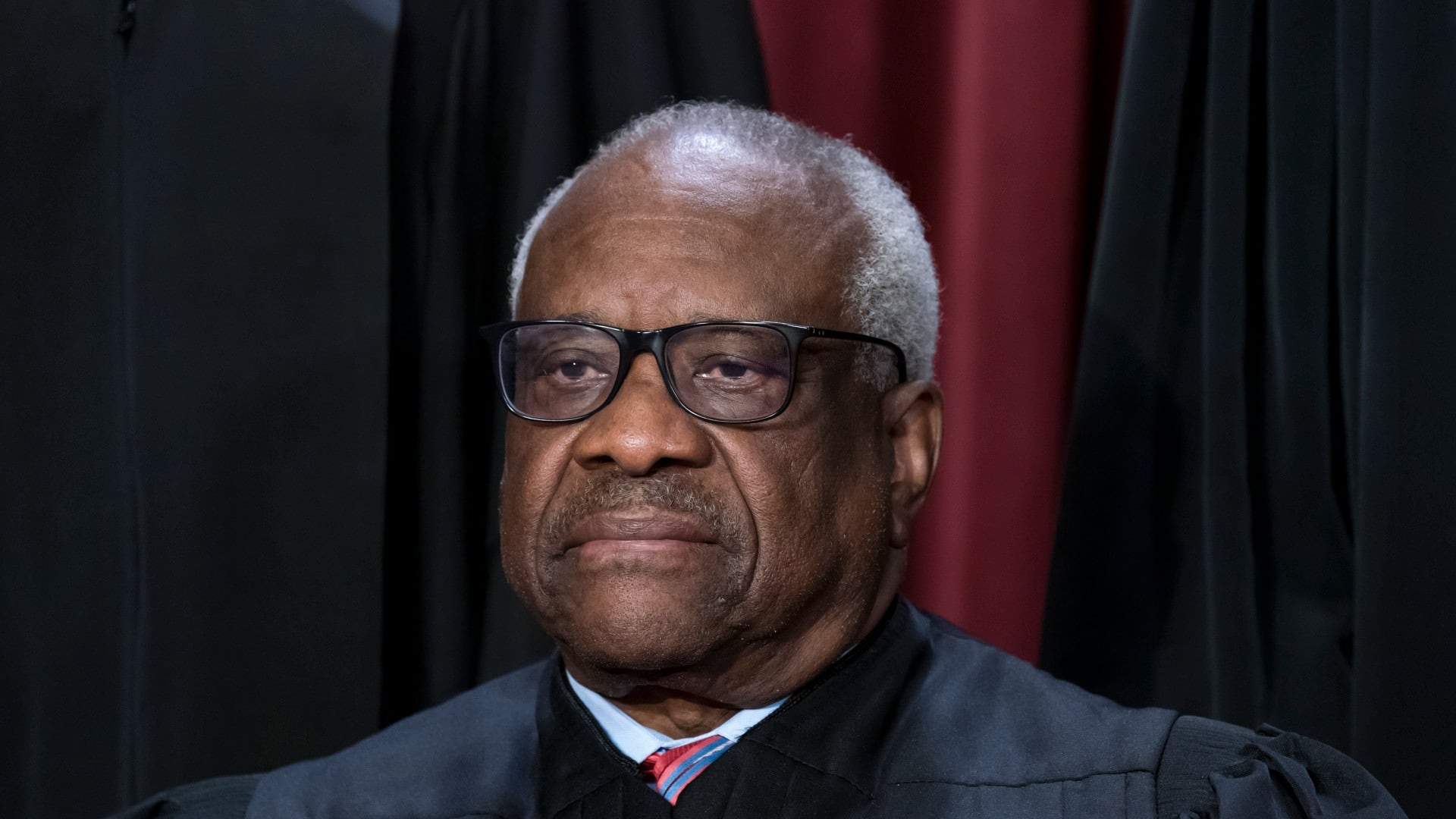By Mark Sherman
Supreme Court Justice Clarence Thomas said Friday he was not required to disclose the many trips he and his wife took that were paid for by Republican megadonor Harlan Crow.
Describing Crow and his wife, Kathy, as “among our dearest friends,” Thomas said in a statement that he was advised by colleagues on the nation's highest court and others in the federal judiciary that “this sort of personal hospitality from close personal friends, who did not have business before the Court, was not reportable.” Thomas did not name the other justices or those in the judiciary with whom he had consulted.
The nonprofit investigative journalism organization ProPublica reported Thursday that Thomas, who has been a justice for more than 31 years, has for more than two decades accepted luxury trips from Crow nearly every year.
Thomas, 74, and his wife, Virginia, have traveled on Crow’s yacht and private jet as well as stayed at his private resort in New York's Adirondack Mountains, ProPublica reported. A 2019 trip to Indonesia the story detailed could have cost more than $500,000 had Thomas chartered the plane and yacht himself.
Supreme Court justices, like other federal judges, are required to file an annual financial disclosure report which asks them to list gifts they have received, but provides exemptions for hospitality from friends.
Ethics experts have offered conflicting views about whether Thomas should have disclosed the trips. Last month, the federal judiciary bolstered disclosure requirements for all judges, including the high court justices, although overnight stays at personal vacation homes owned by friends remain exempt from disclosure.
Thomas, the longest-serving member of the court, said he has always tried to comply with disclosure guidelines. Regarding those changes, “It is, of course, my intent to follow this guidance in the future,” he said in the statement.
Democratic lawmakers said the ProPublica story was the latest illustration of why the Supreme Court should adopt an ethics code and further tighten the rules on travel and other gifts.
It is by no means clear that the justices will agree to subject themselves to an ethics code or that Congress will seek to impose one on the court.
Thomas did not refer to any individual trips paid for by Crow. But he said, “As friends do, we have joined them on a number of family trips during the more than quarter century we have known them.”
Last year, questions about Thomas’ ethics arose when it was disclosed that he did not step away from election cases following the 2020 election despite the fact that his wife, a conservative activist, reached out to lawmakers and the Trump White House to urge defiance of the election results.









